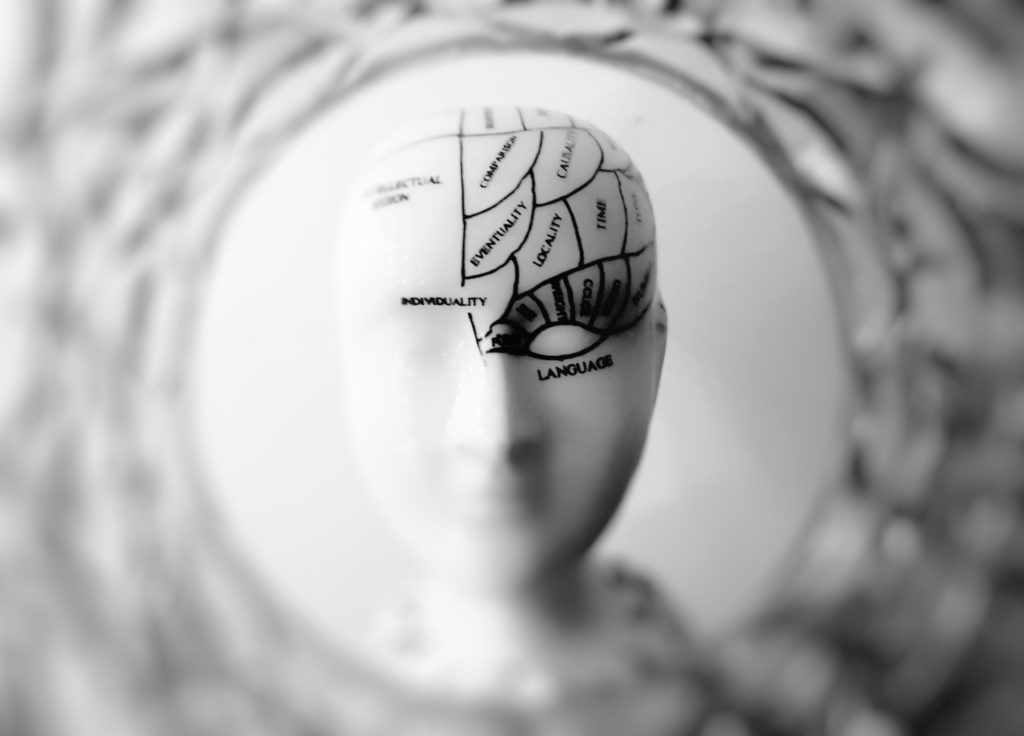
Think about your own thoughts for a moment. How much are those thoughts and behaviors shaped by what you watch, what you read, and what you hear on a daily basis? Seems like we’re all different; we all have our own thoughts, we are all unique, and our beliefs are unique. But are they really? Are we really?
From the day we are born, we are influenced by our parents, by our friends, and by everything we read, see, or hear. Parental influence is a whole different story as media also influences them, and thus, they pass their potential nonsense to their children.
Parental influence is perhaps best described by using the example of musical influence. Let’s say your parents listen to jazz all the time, they also like Tom Waits, Leonard Cohen, and similar artists, then probably the child would also have good and similar taste in music.
Of course, there is a phrase “De gustibus non est disputandum,” meaning that people should not argue about tastes. Still, I am sure we can all agree that Tom Waits, Chet Baker, and Bob Dylan represent better music taste than that of Cardi B or Miley Cyrus. So, music that influenced your parents will probably directly influence your taste in music. And your taste in music will influence many other things in your life like your friends, your community, your topics of interest, et cetera. Now, this is only one example of parents’ influence.
There are many others, like your beliefs, career choice, and political identification. So, as mentioned, parents are also influenced by what they listen to, what they watch on television, and of course what their parents taught them. And so it goes.
However, this is only the tip of the iceberg, especially in modern times. Children are more than ever influenced by media, as they can now consume information all the time from every device, 24/7. One would say yes, but they have a choice on what they read, watch, or listen to. And one would be massively wrong.
Namely, almost all information presented to children (or adults, for that matter) is what the main publishers and media companies want you to see. Of course, you can find information from different sources, but that takes a lot of effort, and so the majority of people (and I mean 90+ percent) consume only content that is presented to them in the most convenient way. That is mainstream television media, top 10 search results on Google, and top news articles. Rarely anyone goes beyond 1st page on Google, and whatever you write in Google as a search term, you will get top 10 results from leading mainstream media & news companies like BBC, NY Times, and similar. That is staggering, isn’t it?
I mean, if you are curious, you would need to spend endless hours searching for articles/videos containing different narratives than it is served to you as mainstream. Many who are curious give up. It’s that hard. Where does that lead humanity in means of consuming information which then leads to defining how you think, who you are, what are your beliefs, and everything else for that matter? Well, it leads to narrow-mindedness in many cases! Having that in mind, let’s look at the example of the United States of America and where is most of the news coming from.
Few Corporations Own All Media?
Basically, in today’s world, people have the illusion of choice when it comes to searching and consuming information. Many people think they are getting their information from hundreds of sources. While in reality, media has never been more consolidated. Six media giants in the US now control a staggering 90% of what we read, watch or listen to. So, let’s look at more details into that matter; it’s rather important.
In the last decades, media companies have been merging more than ever, and big conglomerates are controlling more and more information. In the 1980s, there were more than 50 corporations that provided news (and all other publications and media, including books, radio, and television) to the American people. In the 1990s, that number dropped a lot. By around 50%, to be more specific. Fast forward to a new millennium, and we only have a few corporations that completely dominate the media and publishing industry: Comcast, AT&T (owns Warner Media), and Viacom. They (almost) own everything. You name it; CNN, NBC, ABC, Disney, HBO, Cinemax, Sky Group, Warner Bros… Nearly everyone in the world is familiar with those names as their impact goes far outside USA borders.
They are basically responsible for a significant amount of news being shared in the West. There are, of course, other big news companies that are not controlled by the abovementioned conglomerates. Think of New York Times, Chicago Tribune, or perhaps Los Angeles Times. There are more, of course, but the point here is that they are also somehow under the direct or indirect impact of the conglomerate machine. Ben Bagdikian, Pulitzer Prize-winning journalist, former Dean of the Graduate School of Journalism at UC Berkeley, and author of The New Media Monopoly, portrays the media giants as a “cartel” that has enough influence to change U.S. politics and define social values.
And what about Internet? Well, In the beginning, the Internet was the platform for free thinkers, adopted as a liberating force from corporate-owned media. However, over time, large new sites and platforms on Internet also became part of large media conglomerates. Roughly 80% of the top 20 online news sites in the US are owned by large media companies. Then we have social media companies like Facebook, Twitter, and Google, who at first celebrated freedom of speech, but recently they are pushing the narrative only from a handful of big media corporations, and additionally, they embrace censorship more with each passing day.
So what, one would think? Well, what we should be most concerned about, is the narrowing of choices because that removes the full spectrum of views and information from people with how to behave, what to think, and how to choose its government. This dangerous trend threatens self-thinking and democracy itself. So, where does it all lead if our opinions are influenced by a few conglomerates? Well, it surely does not lead to curiosity, prosperity, and critical thinking. And the latter is most important as people who are thinkers and who question media, movies, documentaries, news, and governments are not really loved in this world nor by governments nor by media corporations. Who needs critical thinkers, ha? A liberal and diverse world needs them, I would say.
Case Studies on the Psychological Effects of Mass Media
So based on that, let’s look at a couple of examples and studies about mass media and how they can influence people both on psychological and physical levels. Namely, many recent studies suggest that the news can affect us in surprising ways – from our perception of danger and risk to the content of our dreams to our chances of having a heart attack. Depending on what we watch, listen, and read, media can have a significant impact on our lives. From our opinion of different political leaders, how we perceive pandemic to the beforementioned content of our dreams – news is sneaking into our subconscious and thus affect our lives profoundly. Some people can even develop post-traumatic stress disorder because of negative news. Not to mention anxiety and other psychological effects that news can have on us. One article published in the International Journal of behavioral medicine by Attila Szabo, Katey L. Hopkinson, describes this very well:
“The psychological effects of televised news were studied in 2 groups (n = 179) of undergraduate students who watched a 15-min random newscast followed by either a 15-min progressive relaxation exercise or a 15-min lecture (control condition). Subjective measures of state anxiety, total mood disturbance (TMD), positive affect, and negative affect were obtained before and after the news, as well as following relaxation exercise or the lecture. The results show that state anxiety and TMD increased, whereas positive affect decreased in both groups after watching the news, and 15 min later, they returned to baseline (pre-news) only in the relaxation group, whereas they remained unchanged in the control group. These findings demonstrate that watching the news on television triggers persisting negative psychological feelings that could not be buffered by attention-diverting distraction (i.e., lecture), but only by a directed psychological intervention such as progressive relaxation.”
Isn’t that something, ha? Especially if we know that majority of media served to us is controlled by a few corporations. What do you think is happening in high-level meetings in those corporations? No, they are not thinking about how to bring you the most relevant and most important news for your wellbeing. They are talking about how to publish news or information that will bring them more revenue. Now, of course, from time to time, they will bring relevant news and important articles, but in the majority of situations, they will try to make money out of gibberish news they serve to all of us.
Positive or Negative News Coming From Mass Media?

So, just stop for a minute and think about the type of news you’re receiving every day, all day. Is that news positive or negative? Primarily negative, and this is on purpose. Why might you ask? Well, simply because negative news (and movies, for that matter) will receive more clicks and more views which then makes more money for corporations that makes the news. There’s psychology research in there. Not that they just decided – “Ok, let’s play negative news to people and see what’ll happen.” They did just the opposite – used different studies in people’s desires and behaviors to their advantage. There are many studies around there on why people read negative news, and some news companies even did experiments on their own websites. A good example here is the news site City Reporter, as they did the experiment for one day to see what will happen if they only share positive news. They placed several negative articles, but they rearranged wording and sentences so that even those sounded more positive. Results? In that one day, they had around 70% fewer readers.
Then we have some more serious research that happened with an actual scientific approach. Researchers Stuart Soroka and Marc Trussler from McGill University in Canada run an experiment to measure what their volunteers actually read and what they say they would like to read. To keep the story short – they used cameras and measurement devices to analyze the eye movements of experiment participants when they read stories they offered to them. There were various stories on the same page, and participants were asked to really read stories they wanted to read, but they didn’t know they were monitored and that their eye movement was monitored. At the end of the experiment, they were asked what kind of stories they usually preferred. Most answered that they usually like positive stories and that, in fact, they think that news is constantly focused on negative stories. And what was the actual experiment result? Well, I think everyone can guess by now. Almost everyone actually read negative stories and articles even though they were offered a mix of positive, neutral, and negative stories and articles.
Now, this is intriguing, isn’t it? People subconsciously prefer good and positive news but choose negative ones, which then negatively affect them both psychologically and physically. This is the story of modern times, unfortunately. So, what do you think will happen in future years? Well, we see that now already. Have you watched popular music videos recently? They are all shaping young people to the degrees of biological and even physical changes. The main propaganda in music videos is one part of the (female) body and how to shake it constantly. Consequently, so many young (and also older) people are now obsessed with this new model for beauty. Not that I have anything against it, but I just wanted to prove the point how just one part of media (popular music videos) can influence some parts of society.
Now think about how all those music videos, movies, and news shape your psyche if we can see the pure fact of changes in even physical appearance. It is weird in some ways for sure, and it will become even more obvious (and probably weirder) in the coming years. Media will have more control, and media will shape even more opinions, especially for young people who are growing up with screens all around them from their birth.





























